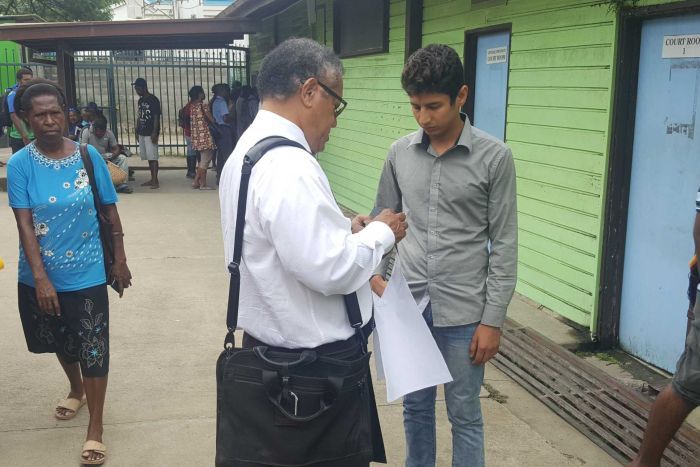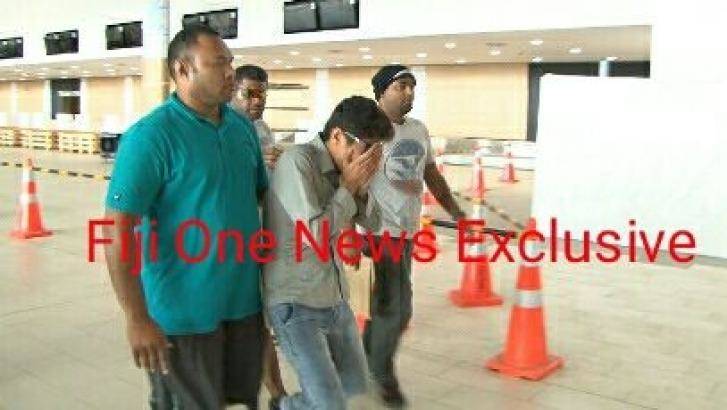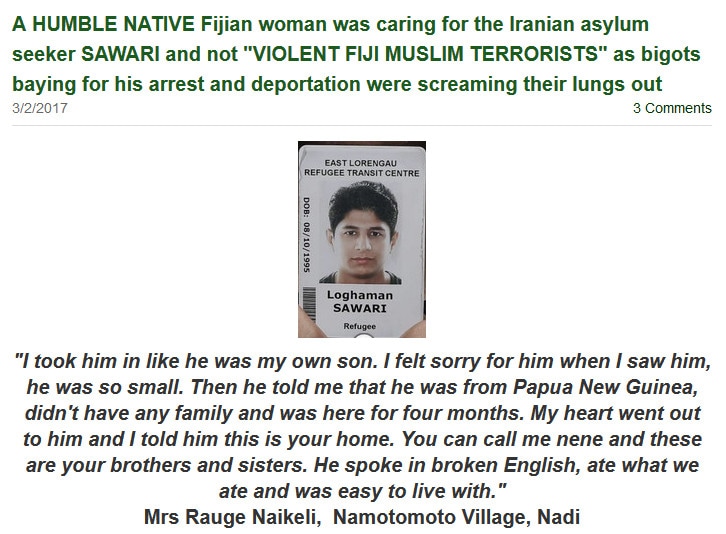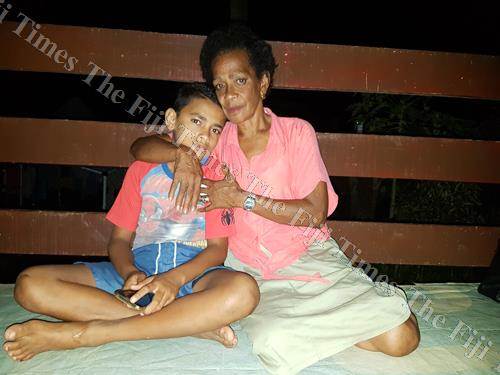PNG Immigration Minister Rimbink Pato has acknowledged Sawari is a vulnerable person, noting his "mental health issues", but said he was concerned about the alleged breach of PNG law
Loghman Sawari was deported from Fiji on February 3, after spending 10 days in that country. His lawyer had said he intended to seek asylum in Fiji, but Sawari was arrested while on his way to a meeting with immigration officials, taken to the airport and sent back to PNG.
PNG police charged him with giving false information in his application for a PNG passport. The 20-year-old was being kept at a Port Moresby police station but is now in hospital. He was brought to court in Port Moresby to apply for bail, but there was a problem with the lodgement of his bail application and the matter was deferred. Sawari was visibly upset and shaking while he waited to apply for bail.
"I am not a criminal, I am a refugee, do you understand what that is?" he said.
He showed journalists apparent self-harm injuries on his arm and said he had developed serious mental health problems from his detention and deportation.
UNHCR 'profoundly concerned' for SawariThe United Nations High Commissioner for Refugees has expressed concern about the treatment of Sawari, saying the agency was "profoundly concerned for his welfare". "UNHCR has long called for refugees and asylum-seekers currently in Papua New Guinea to be moved to humane conditions outside of the country, equally, UNHCR has urged that no refugees or asylum-seekers should be returned there," the UNHCR said in a statement.
"We urge the Government of Papua New Guinea to ensure that Mr Sawari is treated in accordance with international human rights law and standards."
Fiji's Government has defended its decision to deport Sawari, saying he did not comply with international law because he did not immediately apply for asylum upon arrival. It also noted that he had been recognised as a refugee by Papua New Guinea and was a lawful resident there. Sawari was one of the first refugees to leave Australia's detention centre on Manus Island, to take up a job in the country's second-biggest city, Lae. He left his job after a dispute with co-workers and was sleeping rough on the streets before going back to Manus Island.
PNG Immigration Minister Rimbink Pato has acknowledged Sawari is a vulnerable person, noting his "mental health issues", but said he was concerned about the alleged breach of PNG law. Source: ABC News, Australia, 9/2/2017
Did UNHCR give Aiyaz Khaiyum the green light to ambush, detain, and deport Sawari to PNG? He was not allowed to even take his basic possessions in life - two small bags - on the plane to PNG

UNHCR is gravely concerned by the forced return of an Iranian refugee from Fiji to Papua New Guinea today.
The UN Refugee Agency had sought assurances from the Government of Fiji this week that he would have access to Fiji’s national asylum procedures, given his stated intention to seek asylum.
All asylum-seekers are entitled to have their claims for refugee status considered fairly and in accordance with the 1951 Refugee Convention, to which Fiji is signatory.
UNHCR deeply regrets that interventions to prevent the refugee’s forced return were not successful, and is profoundly concerned for his welfare. Further information is being sought from the Governments of both Fiji and Papua New Guinea at this time.
UNHCR has long called for refugees and asylum-seekers currently in Papua New Guinea to be moved to humane conditions outside of the country. Equally, UNHCR has urged that no refugees or asylum-seekers should be returned there.
We urge the Government of Papua New Guinea to ensure that the refugee is treated in accordance with international human rights law and standards.

2/3/2017
Loghman Sawari was deported from Fiji to Papua New Guinea today after entering Fiji on a Papua New Guinean passport.
He is claiming to be a refugee but did not present himself as a refugee seeking asylum to immigration officials on arrival in Fiji. Nor, after ten days, did he lodge an application for asylum, personally or through his lawyer.
The United Nations High Commissioner for Refugees (UNHCR) has advised Fiji that Sawari is not recognised as a refugee under the UNHCR mandate. It has further advised that he is a refugee recognised by Papua New Guinea under its national procedures. So Fiji has merely returned Sawari to his rightful place of residence.
Sawari eluded the authorities during his ten days in Fiji while posting photographs of himself on social media at various locations.
Under international law, anyone who is seeking political asylum is required to lodge an application without delay. In the case of Sawari, this did not happen. And his lawyer - who has been publicly advocating his position through the media - failed to facilitate a prompt application as required under international conventions pertaining to applications for refugee status.
The authorities in Fiji have been informed by their Papua New Guinean counterparts that Sawari’s Papua New Guinea passport was obtained by fraudulent means.
On this basis, Sawari was also in breach of Fijian law which states that “a person who knowingly misleads or attempts to mislead any immigration officer in relation to any matter material to the performance or exercise by any immigration officer of any duty, function, power or discretion...commits an offence.”
The Government notes that Sawari is claiming that he feared for his life. This begs the question as to why for ten days he failed to file an application for asylum. Despite several attempts by the Immigration Department to engage with Sawari, these attempts were ignored.
Fiji remains fully committed to the Convention and Protocol Relating to the Status of Refugees, but we cannot tolerate a situation in which a person who is not an asylum seeker and who has already been granted refugee status in another country flagrantly violates the law.





